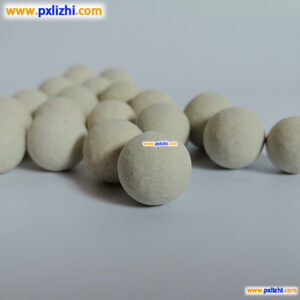
。
# Ceramic Ball Applications in Industrial Processes
## Introduction to Ceramic Balls
Ceramic balls are highly versatile components used across various industrial sectors. These precision-engineered spheres offer exceptional durability, chemical resistance, and thermal stability, making them ideal for demanding applications where traditional metal balls would fail.
## Key Properties of Ceramic Balls
The unique characteristics of ceramic balls include:
– Extreme hardness (often exceeding that of steel)
– Excellent wear resistance
– Corrosion resistance to acids and alkalis
– High-temperature stability
– Electrical insulation properties
– Lightweight compared to metal alternatives
## Major Industrial Applications
### 1. Bearings and Mechanical Systems
Ceramic balls are widely used in high-performance bearings for:
Keyword: ceramic ball
– Aerospace applications
– High-speed machine tools
– Medical equipment
– Semiconductor manufacturing
Their low density reduces centrifugal forces at high speeds, while their hardness extends bearing life significantly.
### 2. Grinding and Milling
In the mineral processing industry, ceramic balls serve as:
– Grinding media in ball mills
– Milling components for pigments and coatings
– Size reduction elements for ceramics and chemicals
Their wear resistance minimizes contamination and extends operational life between replacements.
### 3. Valve Components
Ceramic balls are essential in:
– High-pressure valves
– Corrosive fluid handling systems
– Severe service applications
Their chemical inertness makes them perfect for handling aggressive media that would degrade metal components.
### 4. Automotive Applications
Modern vehicles utilize ceramic balls in:
– Fuel injection systems
– Turbocharger bearings
– High-performance transmission components
Their ability to withstand extreme temperatures and reduce friction improves efficiency and longevity.
## Specialized Applications
### Electronics and Semiconductors
Ceramic balls find use in:
– Chip mounting and packaging
– Electrical insulation components
– Precision positioning systems
### Medical Devices
In healthcare, ceramic balls are employed in:
– Joint replacements (hip and knee prosthetics)
– Dental implants
– Surgical instrument bearings
Their biocompatibility and wear resistance make them ideal for these critical applications.
## Future Trends
The ceramic ball market continues to evolve with:
– Development of advanced ceramic composites
– Increased adoption in renewable energy systems
– Growing use in additive manufacturing processes
– Expansion into extreme environment applications
As industries push performance boundaries, ceramic balls will play an increasingly vital role in enabling new technological advancements.